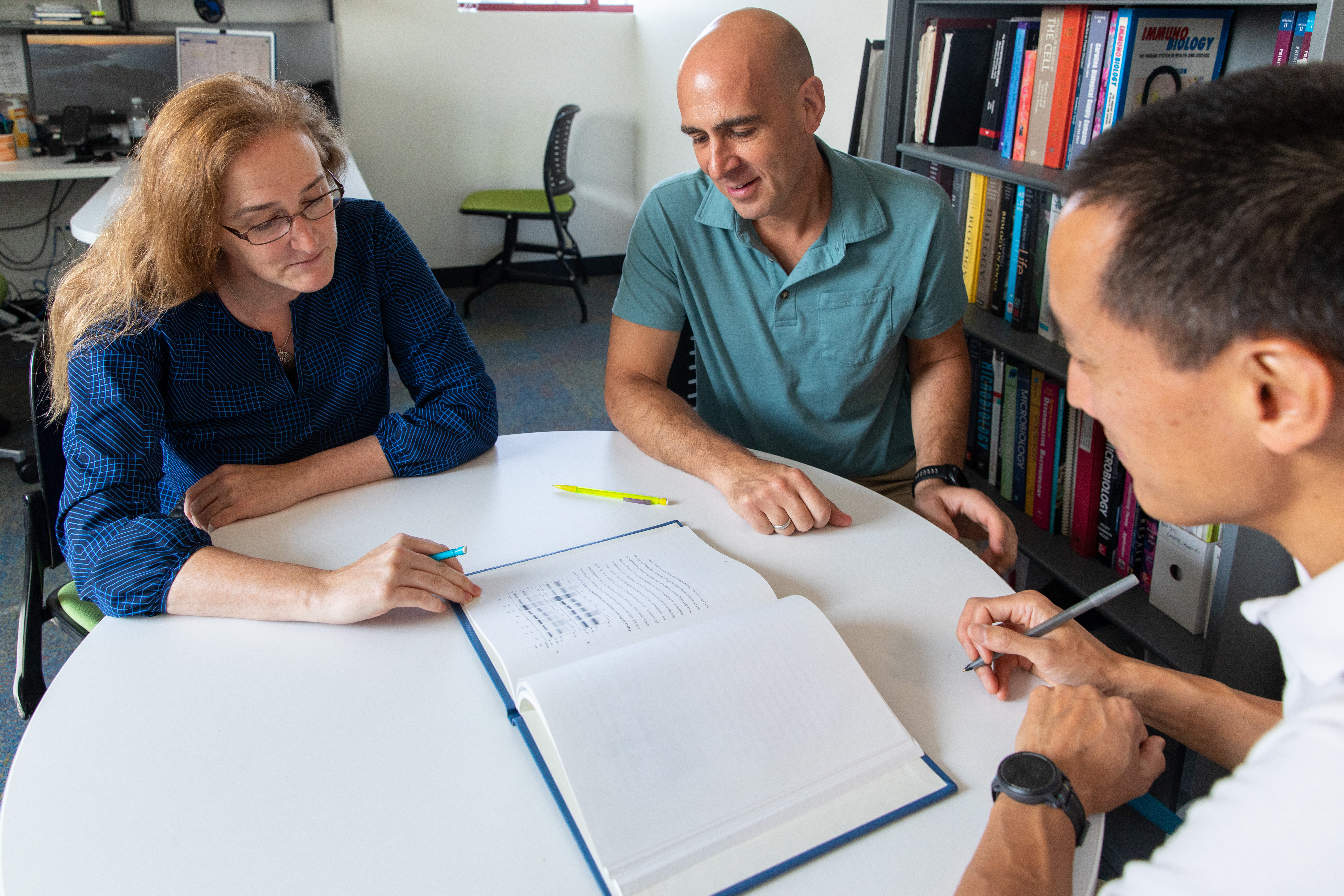
Faculty and students both benefit from the increased collaboration in public health. (Photo by Keeton Holder/DePaul University)
Students pursuing a Master of Public Health degree at DePaul have a new home this fall: the College of Science and Health. The program’s transition from the College of Liberal Arts and Social Sciences has been years in the making.“This transition gives students exposure to more teaching faculty, which I think is really critical for them to gain different perspectives,” says Suzanne Carlberg-Racich, director of the Master of Public Health program. “I’ve loved working with our faculty team within the MPH program, and I’m excited to have additional public health and health science faculty enrich the lives of our students and expose them to different focus areas.”
The Department of Health Sciences will now offer both the MPH and undergraduate public health sciences concentration for health sciences majors.
“A goal of our health sciences programs is to collaboratively address human health from an interdisciplinary perspective, considering both natural and social science,” says Sarah Connolly, professor and chair of the department. “The public health program trains public health leaders who will work collaboratively in diverse communities to address health concerns and improve health equity outcomes. The mission of public health completely aligns with the mission of health sciences.”
Improving the transition to graduate study
DePaul students already have the opportunity to pursue a combined bachelor’s + master’s degree program in the College of Science and Health. The unification of public health with health sciences will lead to a seamless transition from undergraduate study to graduate study in this program.
“We already have a strong selection of courses in public health, but it's an increasingly popular topic among our students,” Connolly says. “Having additional expertise in the department is going to strengthen our curriculum and mentorship opportunities. We have a lot of talented undergraduates, and these additional faculty will bring additional research opportunities for students.”
In addition to the increased opportunity for undergraduate participation in research, the additional faculty joining the public health program in CSH will broaden research and learning opportunities for all students studying public health. John Mazzeo, an associate professor of public health, is on a research team investigating AI’s use in healthcare which recently received a $1.5 million grant from the National Science Foundation.
Doug Bruce, a health sciences professor who also taught in the MPH program, laid the groundwork for this transition during his five years as chair of the Department of Health Sciences. Bruce passed away in June of 2024, and faculty from CSH and LAS recognize his legacy as the program grows.
“This is our logical home – our MPH students know this,” Carlberg-Racich says. “Our study is based in scientific principles, and health sciences aligns perfectly with the goals of our students and faculty.”
To learn more about DePaul’s Master of Public Health program, click here.